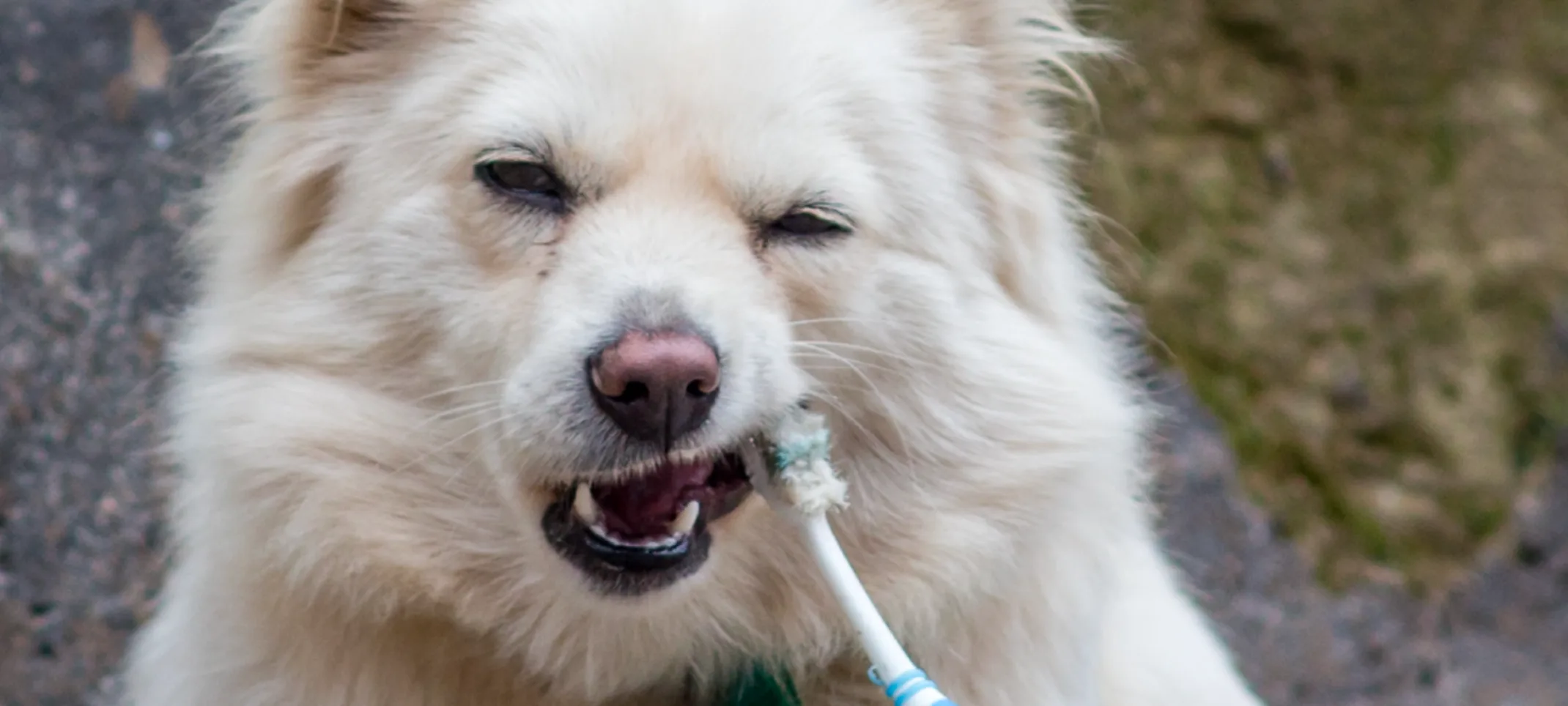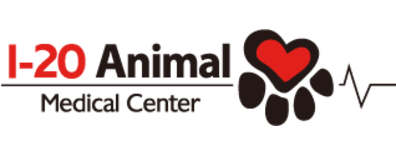I-20 Animal Medical Center
Oral Infection Treatments

Pet oral infections can be divided into three main categories depending on their source. Periodontal involvement is the most common source of infection we see at I-20 Animal Medical Center. Pets and humans lose far more teeth to gum disease than to cavities! The next most common oral infection is an abscessed tooth. This occurs when the nerve inside the pet’s tooth becomes infected and causes pain and swelling. Soft tissue sources such as cysts, tumors, retained biological structures, foreign bodies and cancer are the final category, and they’re much less common than the previous two.
Since the source is different in all three types, so is the treatment. Many pet owners think that an infection is an infection is an infection. But this is very dangerous thinking! Since bacteria fall into two major categories, aerobe and anaerobe (those that need oxygen and those that live without direct oxygen), we need to evaluate which antibiotic will be most effective. Pick the wrong one and you have no effect at all other than GI upset, wasted money and potentially even death.
Tooth abscesses can be treated with root canals or extractions for a long-term solution after initial antibiotic therapy. Often, people jump to extractions since it is the easiest solution. Unfortunately, pets need teeth to chew and maintain digestive health so a quick extraction is not necessarily the treatment of choice. On a large tooth like an upper 4th premolar that requires a surgical extraction and sectioning the roots, a root canal can be competitive price-wise, and in this case, the pet keeps the tooth. Same can be said of most canines. Saving them is often the more economically wise choice.
Periodontal infections in pets tend to be a little more aerobic in nature, though they too have anaerobic components usually, and therefore they require a different antibiotic than an abscessed tooth would. Periodontal infections also tend to be long-term, chronic infections that aren’t easily solved with a round or two of antibiotics. Very thorough, deep cleanings, followed by stringent oral hygiene, is usually needed to get these under control. Doxycycline is often an antibiotic used for this purpose long term.
Other sources like cancer, autoimmune deficiencies, tumors, cysts and retained biologics make up most of the remaining causes of oral infections in pets. Since these vary so much in nature, treatment is highly varied. Cancer is obviously treated with surgery or chemotherapy, tumors and cysts are treated surgically, autoimmune issues require antibiotics and steroids and retained biologics such as retained root tips would require a different, comprehensive treatment altogether. Infections also have the possibility of showing up in the mouth or around the face and actually come from an entirely different source or place.
This is why it is so important to see your dental veterinarian whenever you notice a problem with your pet’s mouth. Besides swelling, lack of appetite, bad breath, pawing the face and general malaise, many other minor symptoms can be present that you may not even notice. If something doesn’t seem right, and you know your pet’s usual behavior, speak up and make sure your veterinarian does a thorough oral exam.
Schedule your pet’s dental care at I-20 Animal Medical Center by calling 817.478.9238.
